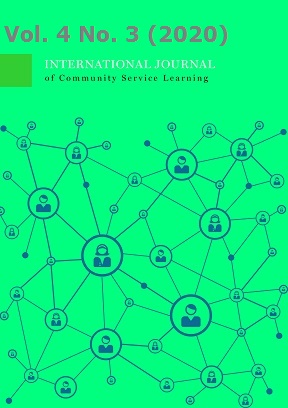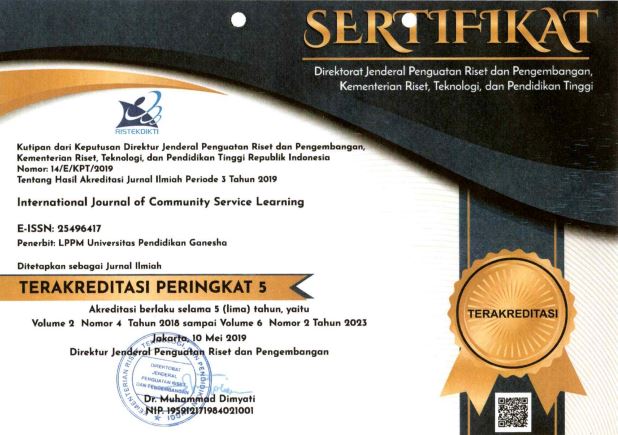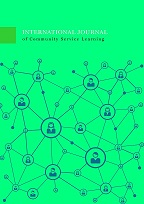The Implementation of Activity Based Learning (ABL) Method at Elementary School to Enhance Students' Speaking Skills
DOI:
https://doi.org/10.23887/ijcsl.v4i3.23939Keywords:
Elementary School, Speaking Skills, ABLAbstract
Learning a foreign language can effectively take place in childhood, which is usually called the golden period. However, recent data shows the number of problems faced by elementary school students. One of the main problems identified is oral competency. This is due to a lack of teachers’ knowledge of teaching methods. The primary objective of this study is to identify whether the implementation of an activity- based learning (ABL) method can improve students’ speaking skills at the Elementary School level. Classroom action research with two cycles was used to investigate the impact of the method at Permata Bangsa Elementary school. The data was collected through observation on 17 students while doing activities and tests administered at the end of each cycle to obtain the result of the learning process. The data obtained were then compared, and the results show the influence on students’ improvement in speaking. Thus, the implementation of ABL at the elementary school can significantly enhance students’ oral competency.
References
Akhalq, M., Chishti, S. ul H., & Iqbal, M. Z. (2016). Activity Based Teaching and Learning through Mentoring in Punjab Province of Pakistan: An Analysis. Mediterranean Journal of Social Sciences, 7(1). https://doi.org/10.5901/mjss.2016.v7n1s1p434
Djamarah, & Aswan. (2013). Strategi Belajar Mengajar. Rineka Cipta.
Dupuy, B., & Krashen, S. D. (1993). Incidental Vocabulary Acquisition in French as a Foreign Language. Applied Language Learning, 4(1), 55–63.
Escobar Fandiño, F. G., & Silva Velandia, A. J. (2020). How an online tutor motivates E-learning English. Heliyon, 6(8). https://doi.org/10.1016/j.heliyon.2020.e04630
Gerngross, G., & Puchta, H. (1996). Do and understand. Longman Harmer.
Gilakjani, A. P., & Ahmadi, M. R. (2011). A Study of Factors Affecting EFL Learners ’ English Listening Comprehension and the Strategies for Improvement. Journal of Language Teaching and Research, 2(5), 977–988. https://doi.org/10.4304/jltr.2.5.977-988
Intarapanich, C. (2013). Teaching Methods , Approaches and Strategies Found in EFL Classrooms : A Case Study in Lao PDR. Procedia - Social and Behavioral Sciences, 88, 306–311. https://doi.org/10.1016/j.sbspro.2013.08.510
Juhana. (2014). Teaching English to Young Learners : Some Points to be Considered. Asian Journal of Education and E-Learning (ISSN:, 2(1), 43–46.
Moeed, S. (2019). Activity-based Learning and Development of High Mental Abilities an Intention of Intermediate Level Chemistry Syllabus. International Journal of Theory and Application in Elementary and Secondary School Education (IJTAESE), 1(2), 131–144. https://doi.org/10.31098/ijtaese.v1i2.37
Murcia, M. (2001). Teaching English as A Second or Foreign Language : Third Edition. New Burry House Publisher.
Parinya S. Ngiamsunthorn. (2014). Effectiveness of teaching and learning mathematics for Thai university engineering students through a combination of activity and lecture based classroom. Asian International Journal of Social Sciences, 14(4), 104–116. https://doi.org/10.29139/aijss.20140406
Pinter, A. (2011). Children learning Second Languages. Palgrave MacMillan.
Sulianti, A. (2018). Peningkatan Kemampuan Pemahaman Dan Analisis Masalah Pada Psikologi Faal Melalui Pembelajaran Berbasis Aktivitas. Psympathic: Jurnal Ilmiah Psikologi, 5(2), 558–565. https://doi.org/10.15575/psy.v5i2.2152
Downloads
Published
How to Cite
Issue
Section
License

International Journal of Comunnity Service Learning is licensed under a Creative Commons Attribution-ShareAlike 4.0 International License.













